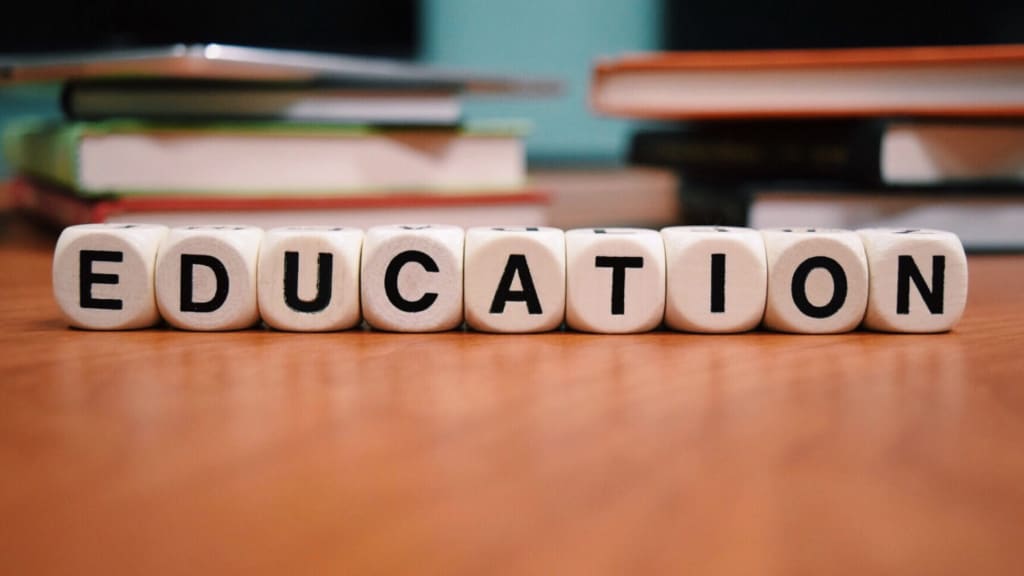Importance of education in society
Education

Start writing...Education is vital for a healthy and thriving society. Here are some importance of education in society:
1. Economic development: Education is closely linked with economic growth and development. Educated individuals have higher earning potential, are more likely to be employed, and can contribute to the economy through their skills and knowledge.
2. Social mobility: Education provides people with the skills and knowledge needed to improve their social status and mobility. It can help people escape poverty and lead to greater opportunities for individuals and families.
3. Cultural and social development: Education can promote cultural and social development by helping individuals to appreciate different cultures, histories, and perspectives, and by fostering knowledge, curiosity, and critical thinking.
4. Improved healthcare: Education can lead to improvements in healthcare by promoting healthy lifestyles, reducing the spread of diseases, and increasing access to medical information.
5. Strengthened democracy: Education is essential for a strong democracy. It promotes critical thinking and informed decision-making, encourages civic engagement, and builds a sense of social responsibility.
Overall, education is essential for the development and advancement of individuals and society as a whole. It has the potential to improve economic, social, cultural, and political outcomes and create a more prosperous, equal, and just world for all.Society has realized the importance of education over many years, and the understanding of its significance has evolved throughout history.
In ancient times, education was often reserved for the elite classes, and its main goal was to prepare young people for leadership roles. In ancient Greece, for example, education focused on subjects such as philosophy, literature, and mathematics, and was seen as a means of preparing individuals for civic life.
Later, during the Renaissance period, education became more humanistic and focused on broadening knowledge in areas such as literature, history, and science. This era saw a rise in the importance of literacy as books became more readily available.
The Industrial Revolution highlighted the role of education in economic development and led to the establishment of public education systems. In the U.S., for example, the establishment of public schools in the 19th century helped to meet the needs of a growing industrialized economy by providing education to a larger, more diverse population.
Today, the importance of education is widely recognized, and it is seen as essential for both individual and societal development. The UN has recognized the right to education as a fundamental human right, and countries around the world have invested heavily in education systems. Education is now seen as a means of promoting economic growth, improving public health, creating a more just society, and achieving global development goals.There can be significant differences between an educated society and an uneducated society, with education impacting many aspects of life at both individual and societal levels. Here are some of the main differences that can arise between an educated and an uneducated society:
1. Economic development: An educated society is more likely to experience economic growth and development. Educated individuals have the skills and knowledge to create and innovate, leading to the creation of new businesses and job opportunities. An uneducated society, on the other hand, may struggle to compete globally or experience larger inequality gaps.
2. Social mobility: Education plays a critical role in social mobility, as it can allow individuals to acquire the skills and knowledge needed to improve their social status. In an uneducated society, social mobility may be limited, leading to a lack of opportunities for advancement, and poverty may become entrenched.
3. Culture and social development: Education fosters critical thinking and curiosity. It allows individuals to appreciate diverse perspectives and cultures, leading to greater tolerance and inclusivity. In an uneducated society, prejudice and biases may be more common, leading to social conflict and division.
4. Health: Education is linked to better health outcomes, both at the individual and societal levels. Educated individuals are more likely to live healthier lifestyles and understand the kind of attention required for maintaining good health, resulting in fewer health concerns than those in uneducated societies.
5. Democracy: Education is essential for promoting a democratic society. Educated citizens understand civic engagement, are able to think critically and make informed decisions in the context of known facts and truths. An uneducated society is less likely to understand the importance of democracy, which can lead to various forms of political instability.
In general, an educated society benefits from increased opportunities, better public health, greater cultural inclusivity, and more robust democracies, while an uneducated society may be at a disadvantage in terms of economic growth, social mobility, health outcomes, and political stability.





Comments
There are no comments for this story
Be the first to respond and start the conversation.